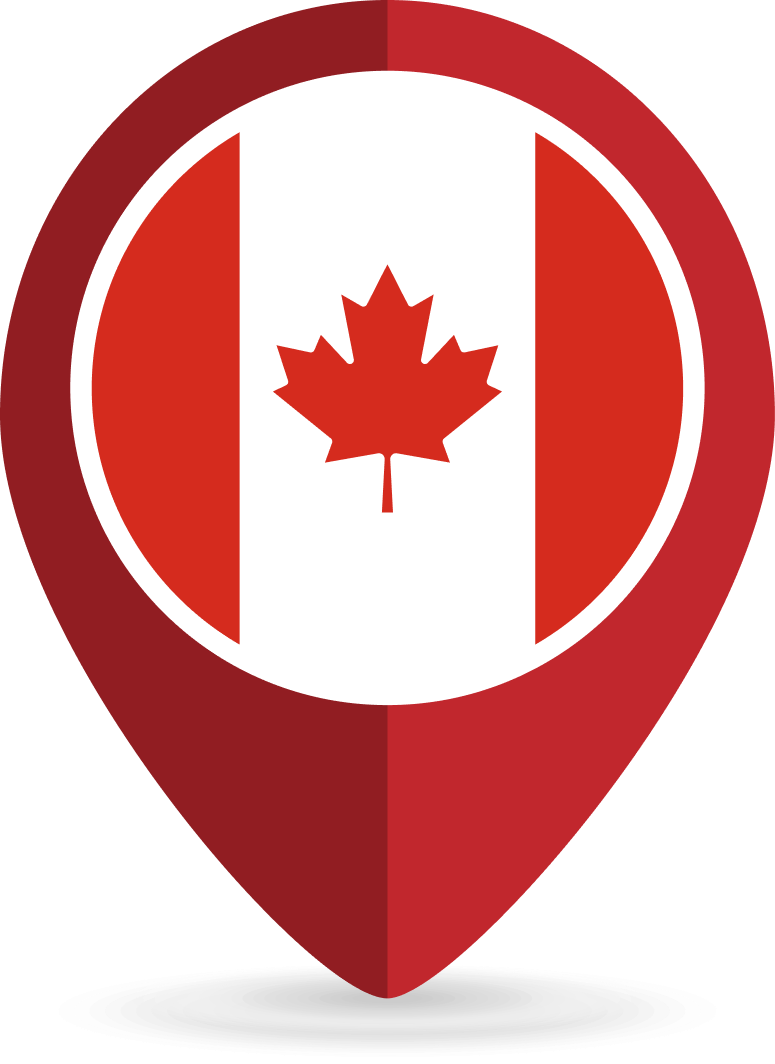Cost of living in Canada For Indian Students
Canada is a top destination for international students seeking diverse opportunities for personal and professional growth. Living expenses for international students in Canada are generally cheaper than in other popular destinations such as the UK, Australia, and USA. Studying in Canada is a worthwhile investment as students gain access to premier education and globally recognized degrees. Planning and considering expenses beforehand is recommended. Citizenship and Immigration Canada (CIC) requires evidence of sufficient funds from candidates. Canadian universities provide a cost of living estimate, and students should have at least CAD 12,000 per year to live comfortably in Canada.
Canadian Education System
In Canada, the education system is divided into four levels: pre-elementary, elementary or primary, secondary, and post-secondary, and it is administered by provinces. Colleges in Canada mainly provide certificates, diplomas, and vocational training programs, while universities offer bachelor’s, master’s, and doctorate degree programs.
The unique culture, scenic beauty, extraordinary wildlife, excellent medical and healthcare facilities, and top-notch colleges and universities make Canada one of the best countries to live in. Every year, a significant number of people choose to migrate to Canada, and for good reason. The country’s many virtues and promises make it worthy of all the praise it receives.
Average Living Expenses for International Students in Canada
Monthly Cost of Living in Canada for Students
| Expenses | Cost (CAD) |
| Accommodation (shared apartments) | $400 – $800 |
| Travel | $80 – $110 |
| Food | $300- $400 |
| Entertainment | $150 |
| Health Insurance (BC MSP Program) | $74 |
| Utilities (Electricity, cooling, water, heating, garbage) | $164.64 |
| Utilities (Internet – 60 Mbps or more) | $78.82 |
Cost of Accommodation for International Students in Canada
| Type of Accommodation | Average Cost (CAD) |
| On-campus | $8,000 $10,000 (annually) |
| Shared accommodation Off-campus | $400 to $700 (monthly) |
| 1 BHK in City Center | $1,332 (monthly) |
| 1 BHK Outside of City Center | $1,123 (monthly) |
City-Wise Average Rentals in Canada
| City | Average Two-Bedroom Rent/month |
| Vancouver | $1,8254 |
| Edmonton | $1,270 |
| Victoria | $1,571 |
| Calgary | $1,355 |
| Ottawa | $1,550 |
| Toronto | $1,666 |
The cost of living in Canada for international students will vary depending on the province and city they choose to live in.
| City | Average Annual Cost of Living (CAD) |
| Calgary | $26,904 |
| Montreal | $25,000 |
| Ottawa | $20,000 |
| Toronto | $37,000 |
| Vancouver | $38,484 |
The cost of transportation for international students in Canada will depend on where they choose to live and their mode of transportation. For students who choose to use public transportation, one-way fares can cost a few dollars, while monthly passes can range from about CAD 80 to CAD 150. The exact cost will depend on the city and the transportation system in place.
| Factors | Average Monthly Cost |
| Subway | CAD 65 – CAD 99 (Monthly Pass) |
| Buses | CAD 100 – CAD 150 |
| Taxi (1km) | CAD 40 – CAD 50 |
The cost of education in Canada varies depending on factors such as the course, university, and tuition fees. Universities review their tuition fees for both domestic and international undergraduate and graduate students each year. Therefore, it is important for students to confirm the tuition fees before applying to a university. Here are the average education costs for different courses in Canada:
| Discipline | UG Course Average Fee (Per Year) | PG Course Average Fee (Per Year) |
| Pharmacy | CA$ 32,886 | CA$ 10,500 |
| Medicine | CA$ 33,000 | Not Available |
| Architecture and Related Technologies | CA$ 22,100 | CA$ 20,000 |
| Engineering | CA$ 26,582 | CA$ 15,800 |
| Nursing | CA$ 18,000 | CA$ 12,000 |
| Mathematics and Computer Science | CA$ 25,000 | CA$ 13,000 |
| Law | CA$ 27,056 | CA$ 16,549 |
| Business Management | CA$ 23,500 | CA$ 20,000 |
| Factors | Average Monthly Cost |
| Subway | CAD 65 – CAD 99 (Monthly Pass) |
| Buses | CAD 100 – CAD 150 |
| Taxi (1km) | CAD 40 – CAD 50 |
| UG Course | Tuition Fees |
| Business | $56,000 |
| Computer and IT | $55,000 |
| Engineering and technology | $55,000 |
| Social and natural sciences | $53,000 to $56,000 |
| PG Course | Tuition Fees |
| Business | $52,700 |
| Computer and IT | $52,500 |
| Engineering and technology | $52,500 |
| Social and natural sciences | $37,000 to $58,300 |
| University | Tuition Fees |
| Memorial University of Newfoundland | $11,460 per year |
| University of Regina | $20,050 per year |
| Athabasca University | $17,250 per year |
| Royal Roads University | $27,500 per year |
| Humber college | $29,500 per year |
| Thompson River University | $35,650 per year |
| City | Average Living Cost (per person) |
| London, Ontario | $1,013 |
| Regina, Saskatchewan | $1,124 |
| Calgary, Alberta | $1,154 |
| Edmonton, Alberta | $1,183 |
When international students decide to study in Canada, there are several factors that can impact their cost of living. Some of the major factors that may affect their living expenses include:
Based on educational institutions
The cost of living in Canada for international students is heavily dependent on the city in which their university is located. The living expenses for each college will vary based on the university that the student chooses to attend. To determine which university would best meet the needs of the student, continue reading.
Big suburban areas vs city
The cost of living is higher in urban centers compared to the suburbs. On-campus housing is a preferred option for many students, although it may not always be the most affordable choice. Vancouver and Toronto are the most expensive cities to live in Canada, and Toronto’s housing costs have continued to skyrocket due to a shortage of affordable housing.
On average, the cost of basic utilities such as water, electricity, heating, cooling, and garbage in Canada is around C$180 per month, while internet expenses typically amount to C$80 per month. However, as a student or working professional moving to Canada, you will also need a local SIM card, and this is where CanadianSIM comes in as the ideal choice.
Designed specifically for students and professionals relocating to Canada, CanadianSIM provides exceptional value for money. With SIM cards that offer coverage across Canada, CanadianSIM ensures that you can stay connected wherever you are. Additionally, CanadianSIM plans offer high-speed LTE data and free calling and texting to anyone in Canada, ensuring that you can easily stay in touch with family and friends. Choose CanadianSIM for a hassle-free and cost-effective way to stay connected while in Canada.
To make an informed decision about studying abroad, international students must conduct a comprehensive comparative analysis of various destinations, taking into account factors such as the cost of education and accommodation. One crucial aspect that varies across countries is the cost of accommodation for international students. Let’s explore the average accommodation costs for international students in different countries.
| Country | Accommodation Cost |
| Canada | On-campus – Rs. 4,75,007 to Rs. 5,93,759 annually Shared Off-campus – Rs. 23,750 to Rs. 41,563 every month |
| UK | On campus- Rs. 41,120 – Rs. 61,681 every month Off-campus – Rs. 61,694 – 2,05,648 every month |
| USA | On-campus- Rs. 7,27,559-8,24,072 annually Shared Off-campus- Rs. 33,408 every month |
| UAE | On campus: Rs. 51,025 annually Off-campus- Rs. 63,640- Rs. 1,74,850 every month |
| Germany | Rs. 25,000 – Rs. 60,000 every month |
| Australia | On-campus- Rs. 5,488 – Rs. 13,970 every month Off-campus- Rs. 4,500 – Rs. 21,953 every month |
Frequently Asked Questions about the Cost of Living in Canada for Students
Related Posts



















